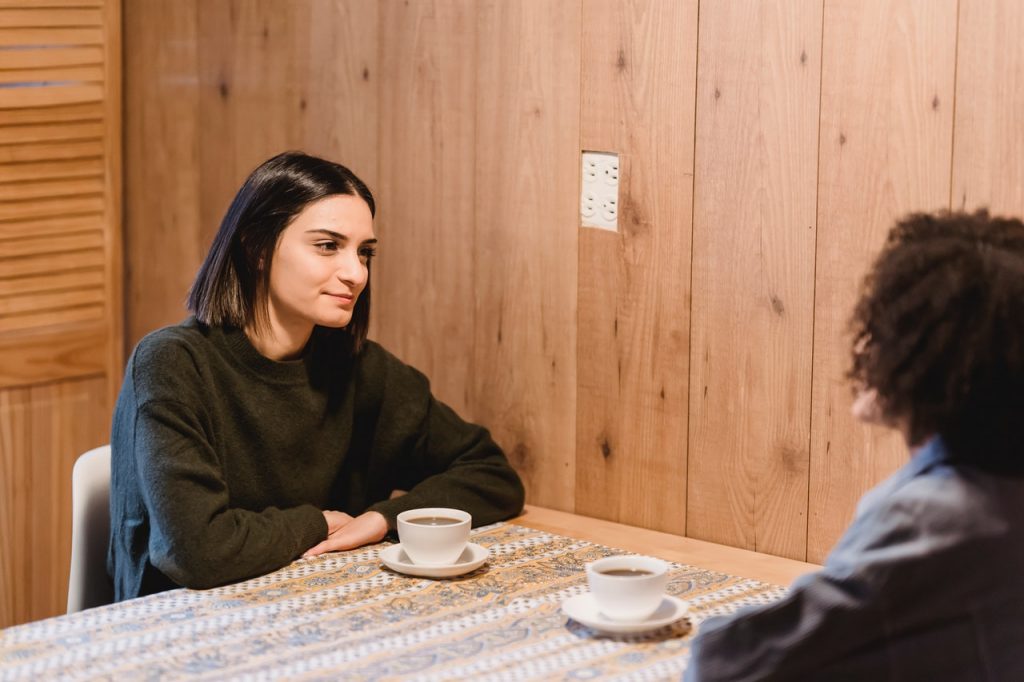For families with kids, ‘community’ usually means having the support and company of other families. They provide playdates for your kids, exchange toys and parenting tips, and even babysit once in a while. But what does that look like for married couples without kids?
Or rather, what does a healthy ‘community’ look like in the context of marriage alone?
To be honest, I struggle with this question myself. And I wonder if there are others who do too? Maybe in figuring out the best way to live as a married couple with everyone else on planet Earth, we might find ourselves in one of two scenarios.
The two scenarios
One where it feels like your marriage comes with an entourage – your parents and in-laws, friends, mentors and spiritual leaders. Everyone has a say (probably because you’ve allowed it). There is no personal space. Your life is on display. Worst case scenario, there’s even an unspoken pressure to achieve a perfect marriage.
The other is more private. So private, that even when there’s a desperate need for support, you don’t know who to reach out to. Or maybe you’ve tried, and it so happens the people around you feel uncomfortable getting involved in such a personal area of your life.
It’s like, you made your vows and now it’s time to live up to it, preferably without airing dirty laundry. It can feel like a lonely journey.
These hypothetical scenarios are a little extreme, but maybe certain aspects of it can feel close to home for some.
So what’s the third scenario?
I don’t have the answer to what a healthy community for marriage looks like right now. I’m still figuring it out. But I think it could start with us married people being a good friend to others who are married too (yeah surprise! Married people do need friends) and being more intentional about it.
I’d like to share three things I’ve picked up from a small handful of friends who have been so supportive of my marriage. They have somehow mastered the ability to respect my privacy yet care enough to really engage in a conversation when I need it most.
1. Respect boundaries and be courageous

Photo by Brett Jordan on Unsplash
Respecting the boundaries between yourself and another married couple means recognising they may have their own “marriage culture” or even their own belief system. Respect enables you to see that no one is better than the other, we are all different and we are at different areas of a similar journey (that journey being, marriage). Being courageous means despite your differences, you don’t have to stay a mile away from them.
Have the courage to engage in conversations that matter. Ask how they’re doing, share parts of your own married life that you’re comfortable with, and when they do start opening up… give them the space to express their thoughts and emotions without judgement.
2. Put empathy and encouragement together.

Photo by Liza Summer from Pexels
If you’ve been married for a while, you’d know marriage has its ups and downs. During some down moments, I have found one or two very close friends who tell me that I am not alone. They tell me that they understand what I am experiencing and they validate my feelings. It is such a relief! I then take comfort in the reminder that we are all human – a work in progress, and that someone understands me even when my own spouse doesn’t. Thank God for these friends! But it doesn’t stop there. Their empathy always comes with a little encouragement.
Sometimes it’s a quick tip on how to communicate better with my spouse or how to manage my own expectations, other times it could be a Bible verse that speaks truth and life into my situation. Whatever it is, they don’t let it turn into a rant party. There’s always a hopeful call-to-action at the end of our conversation. Yesss, solutions!
3. Always root for the marriage. Avoid taking sides.

Photo by Jonathan Borba from Pexels
As a young(ish) married person, it’s so easy to default to old ways of living. That is, looking out for myself first and not for the both of us. It’s easy to forget that we are now “one”.
One thing I’ve really appreciated is how supportive friends always make it clear that they are rooting for the marriage itself, not for me.
They don’t take sides when they listen to issues. There’s no more “No way girl! I can’t believe he did that! You deserve better!” kind of talk. (And I really hope that men have stopped giving the “Yo bro, that’s crazy. But no matter what just tell her she’s always right la.” type of advice. It doesn’t do anything to encourage meaningful participation and growth in the relationship.)
Their stand to root for our marriage comes from a position of maturity. It acts as a reminder for me to do the same as I try to navigate the next step. It’s a call to find a solution that works for both parties, not just a solution for myself.
Before I end…
I need to add: please note there are situations where wisdom needs to be applied in how we support the parties involved, such as with an abusive marriage. If you and your spouse don’t feel equipped to handle this, I recommend seeking advice from a trained marriage therapist or referring the married couple in question directly to a professional therapist while it’s still possible.

Photo by Liza Summer from Pexels
Also, perhaps in an ideal world, every married couple has a “married best friend duo” to do life with. Where the husbands get along and the wives get along, kinda thing. If you have that going, great! Keep investing into that friendship. But for the rest of us, having individual support is already a lot to be thankful for. It is best done with persons of the same gender to avoid any complications.
At Comma: Rethink Life, it is our greatest desire to see family relationships thrive. That always starts with a healthy and strong marriage. We hope that these little gestures will help paint a more visible picture of what a community for marriage might be.
Featured image by Cleyder Duque from Pexels





